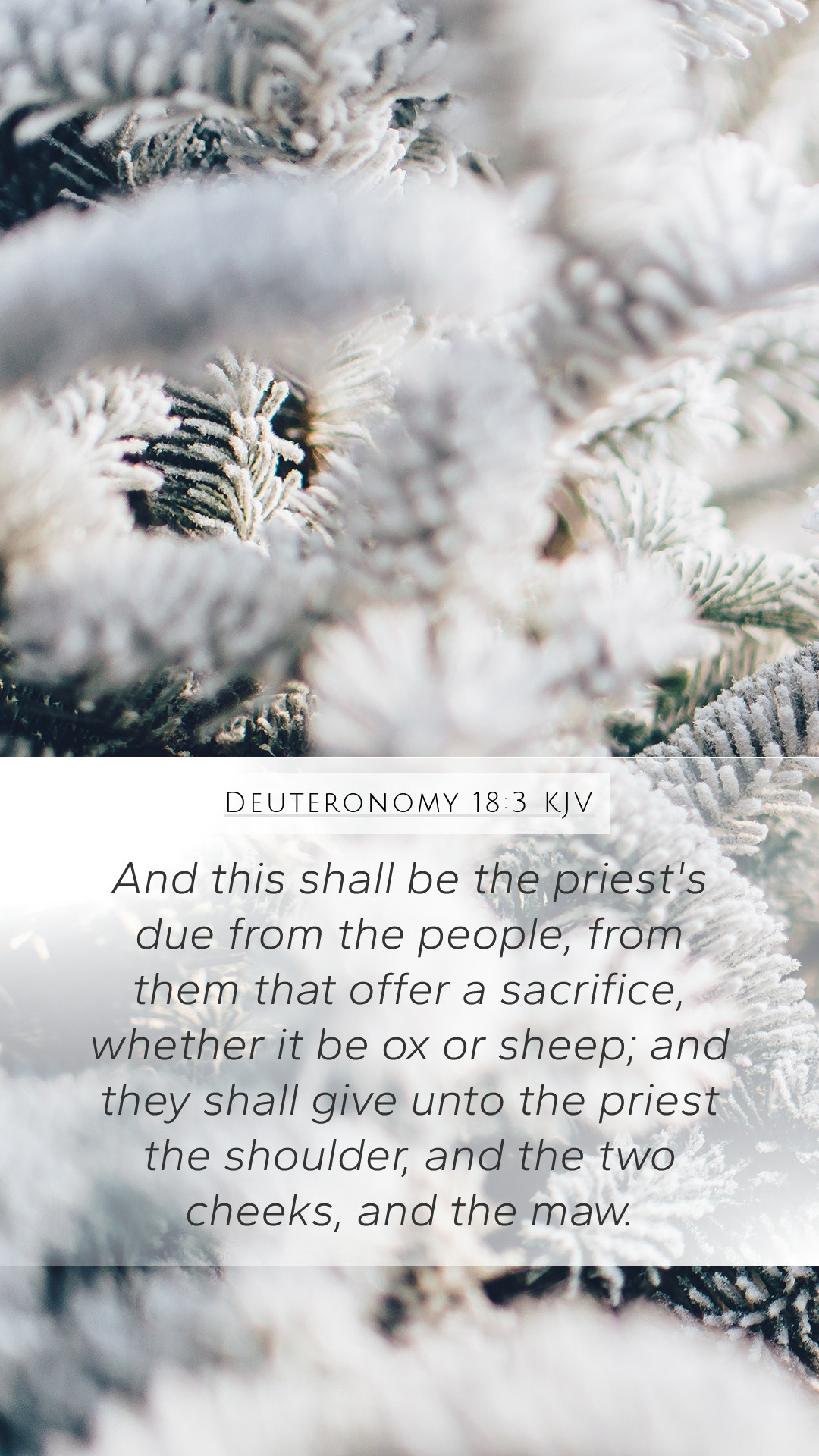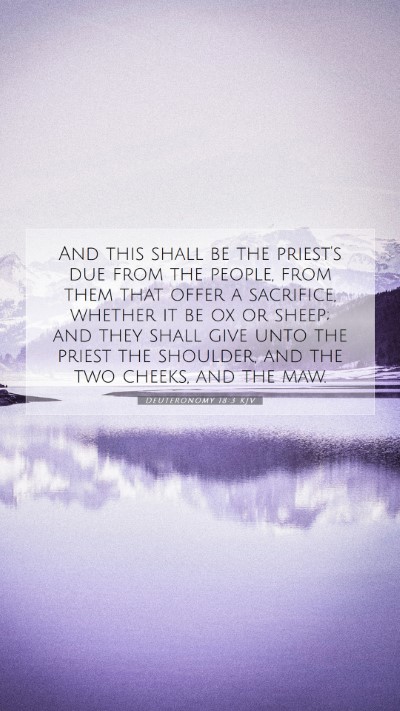Bible Verse Explanation: Deuteronomy 18:3
Verse Text: "And this shall be the priest's due from the people, from them that offer a sacrifice, whether it be ox or sheep; and they shall give unto the priest the shoulder, and the two cheeks, and the maw." (Deuteronomy 18:3, KJV)
Understanding the Meaning of Deuteronomy 18:3
The verse outlines the specific portions of the sacrifices that are to be given to the priests as a part of their due. This provision signifies God's arrangement for the sustenance of those who serve Him in the priestly office.
Bible Verse Meanings and Interpretations
- Divine Provision: This verse reflects the principle of divine provision for those who minister in spiritual service. God ensures that the needs of His servants are met through the offerings provided by the people.
- Symbolism of the Sacrifice: The specific portions mentioned (the shoulder, cheeks, and maw) can be seen as symbols of strength, acceptance, and nourishment, which are essential traits in the spiritual leadership of the priests.
- Community Responsibility: The passage emphasizes the responsibility of the community to support their spiritual leaders, underlining the reciprocal relationship between the priesthood and the people they serve.
Scripture Analysis and Commentary Insights
According to Matthew Henry, this instruction establishes a practice whereby the priests would be supported by the offerings of the people. This not only ensures their physical sustenance but also reinforces the idea that those who engage in spiritual duties should not be neglected.
Albert Barnes further notes that these portions are designated to the priest as a symbolic act recognizing their role as intermediaries between God and the people, thus elevating the significance of their duty within the community.
Adam Clarke highlights the cultural context of the time, where priests played both a religious and social role, and this sharing of the sacrificial offerings served to bind the community together through shared worship and support for their leaders.
Historical Context of the Passage
In ancient Israel, the Levitical priesthood was established as a crucial part of worship and societal structure. The sacrifices represented not only a means of atonement but also a way to maintain the community's relationship with God. By ensuring that the priests received their due, the people acknowledged and honored God's order for spiritual service.
Application of Deuteronomy 18:3 in Modern Life
For contemporary believers, this passage can encourage reflection on the importance of supporting those who serve in ministry. It prompts individuals and communities to consider how they can provide not just for the physical needs of their spiritual leaders, but also support their spiritual and emotional well-being.
Moreover, it underscores a broader principle of stewardship and community responsibility, urging believers to actively contribute to the welfare of their church and its leaders.
Cross References
- Numbers 18:8-10 - Discusses the portion for the priests in terms of sacrifices.
- Malachi 1:6-14 - Talks about the importance of honoring God in sacrifices and offerings.
- 1 Corinthians 9:13-14 - Highlights the principle of supporting those who preach the gospel.
Final Thoughts
Deuteronomy 18:3 remains a vital instruction that highlights the spiritual and communal responsibilities within the Body of Christ. By understanding its implications, believers can cultivate a stronger bond with their faith leaders and embody the principles of generosity and support as outlined in this scripture.


